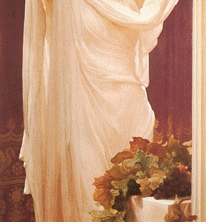
Aeschylus, called "the father of tragedy," was one of the three greatest tragic dramatists of the ancient world, along with Euripides and Sophocles. Born at Eleusis in 525 B.C.E. to a noble family, Aeschylus fought at Marathon and other battles of the Persian war. He introduced the concept of the dramatic trilogy (so he could also be called the "father of the sequel"). The Oresteia is the only trilogy of his that we still have intact; for instance, the Persians is part of a lost trilogy about the Persian war. Aeschylus employed dialog rather than the chorus to move the narrative along, which was a key step towards modern drama. He spent most of his career in Athens but exiled himself to Sicily after writing the Eumenides. He died in 456 B.C.E. THE ORESTEIAtranslated by Edmund Doidge Anderson Morshead [1881] translated by Edmund Doidge Anderson Morshead [1881] translated by Edmund Doidge Anderson Morshead [1881] Other Playstranslated by Edmund Doidge Anderson Morshead [1881] translated by Edmund Doidge Anderson Morshead [1881] translated by Edmund Doidge Anderson Morshead [1881] translated by Robert Potter [1809] |
| On Twitter, follow 'sacredtexts.' |
| Sacred-texts on Facebook |
|
|
|
|
|
|
 Buy a mug. Support this site. |


![Orestes Pursued by the Furies (1862) [Public Domain Image]](furies.jpg)


